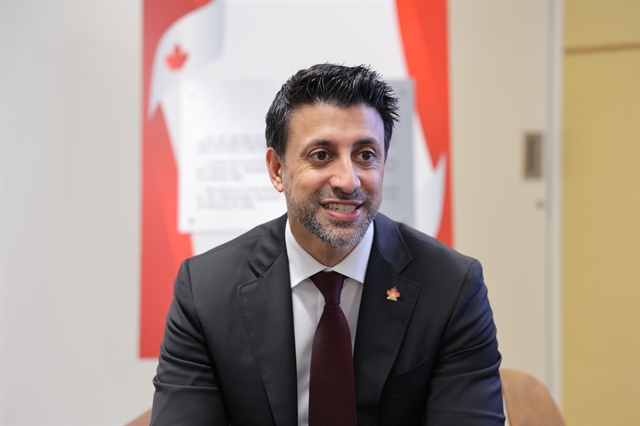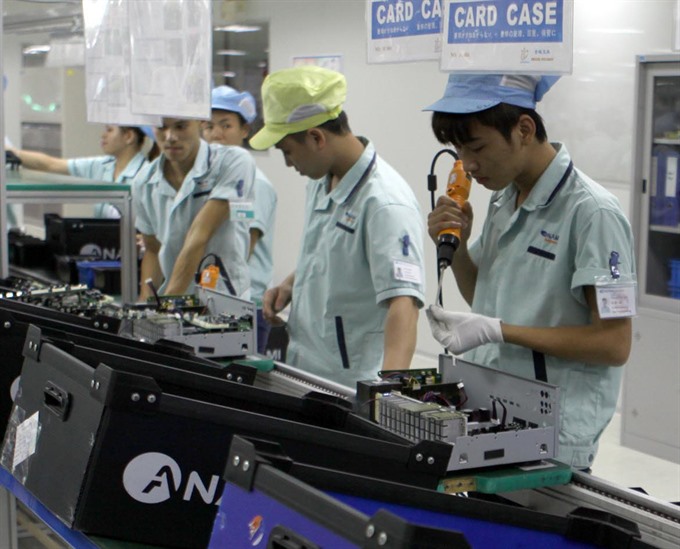 Economy
Economy

The National Financial Supervisory Committee (NFSC) anticipates gross economic growth of Việt Nam in 2017 will be more than 6.7 per cent.
 |
| An electronic parts production chain at Anam Electronics Vietnam Co., Ltd in D9o62ng Va8n 2 Industrial Zone Hà Nam Province.— VNA/VNS Photo Vũ Sinh |
HÀ NỘI – The National Financial Supervisory Committee (NFSC) anticipates gross economic growth of Việt Nam in 2017 will be more than 6.7 per cent.
The target, several months ago, was forecast to be beyond reach.
NFSC said the Government’s policies to improve investment climate and promote businesses posted positive results and fuelled gross domestic product (GDP) growth through increasing demand.
Consumption and investment demand will increase significantly in the fourth quarter of this year once the disbursement of construction capital was stepped up, together with anticipated improving exports thanks to advantageous developments in global trade.
“Following impressive growth in the second and third quarters, GDP growth will touch 7.5-7.5 per cent in the fourth quarter of this year,” NFSC said in the report, adding that growth for the full year would reach more than 6.7 per cent.
NFSC also saw a stable trend in prices of goods in the remaining months of this year.
“If there are no sudden fluctuations in prices of public services in the remaining months, inflation in 2017 will increase at just 3 per cent,” the report said.
At a meeting early this month, the Vietnamese Government said it was determined to achieve the target of 6.7 per cent GDP growth in 2017, urging comprehensive measures and hastened efforts to fulfill this goal.
After posting GDP growth rate of 6.7 per cent in the third quarter of this year, the Vietnamese economy must grow at a minimum of 7.31 per cent in the last quarter to achieve its goal.
According to Dương Mạnh Hùng, deputy director of the National Account System Department under the General Statistics Office, NFSC’s forecast had merit.
There were new stimulators for economic growth in the last quarter, such as visa exemption for tourists from five European countries, anticipated loan interest rates cuts, increase in credit growth and ministries’ efforts to reduce business prerequisites and fees, Hùng said.
NFSC’s report said there was room to cut interest rates, given not-too-high exchange rate pressure and under-control inflation.
In the first nine months of this year, loan interest rates decreased slightly by 0.5-1 per cent, especially for prioritised sectors.
International organisations were upbeat on Việt Nam’s economic growth this year, but their projections were mostly lower than the Government’s targets.
The World Bank East Asia and Pacific Economic Update on October 4 released their projected GDP growth rate for Việt Nam in 2017, which was 6.3 per cent.
The Asian Development Bank said in the Asian Development Outlook Update in late September that Việt Nam’s economic growth would also be at 6.3 per cent this year, 0.2 percentage points off from the previous forecast.
HSBC early this month revised upwards its forecast for the country’s economic growth to 6.6 per cent. — VNS